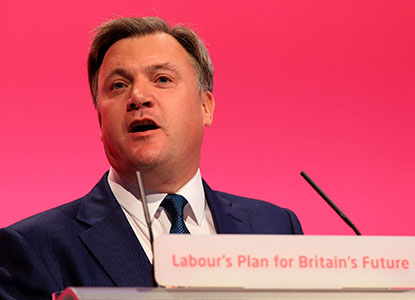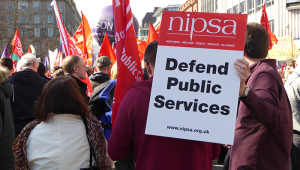By Richard Johnstone in Manchester | 22 September 2014
Shadow chancellor Ed Balls has said the next Labour government would extend the coalition’s below-inflation annual increases in Child Benefit, meaning that the value of the payment would likely fall in real terms until at least March 2017.

Balls said that he would extend the 1% annual increase – which was introduced in the 2013/14 financial year for three years – for an further extra 12 months if Labour wins next May’s general election.
Addressing Labour’s annual conference today, Balls said the party would keep the government’s benefits cap, which limits household benefit payments to £26,000 a year. It would also maintain a limit on structural social security spending, although it could be calculated differently from the coalition's cap that will come into effect from next April.
‘I want to see Child Benefit rising again in line with inflation in the next parliament, but we will not spend money we cannot afford,’ he said.
‘So for the first two years of the next parliament, we will cap the rise in Child Benefit at 1%. It will save £400m in the next Parliament. And all the savings will go towards reducing the deficit.’
He told delegates that such a measure was needed as the next government would continue to face tough spending constraints.
People want to know that Labour will ‘balance the books and make the sums add up’ ahead of the general election, Balls said, as he also announced that a future Labour government would also immediately cut the pay of every government minister by 5%.
‘These will be our tough fiscal rules – we will get the current budget into surplus and the national debt falling as soon as possible in the next parliament,‘ he added.
‘And we will legislate for these tough fiscal rules in the first year after the election and they will be independently monitored by the Office for Budget Responsibility.’
This would mean Labour’s manifesto for next year’s general election will include no spending proposals that would require additional public sector borrowing.
‘We will not make promises we cannot keep and cannot afford,’ he told delegates.
Balls also indicated that the party’s zero-based budget review, which is revisiting all public spending, was developing plans for where savings can be made in budgets, across areas such as health and social care integration and local integration of public services. Any savings from these initiatives could be used to fund early intervention projects that could lead to further savings in the future, he announced.




















